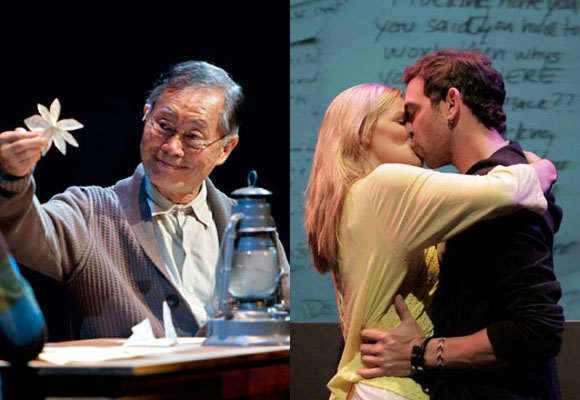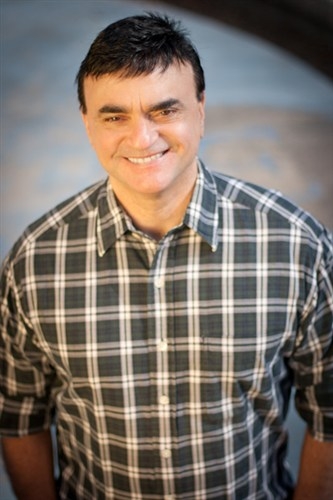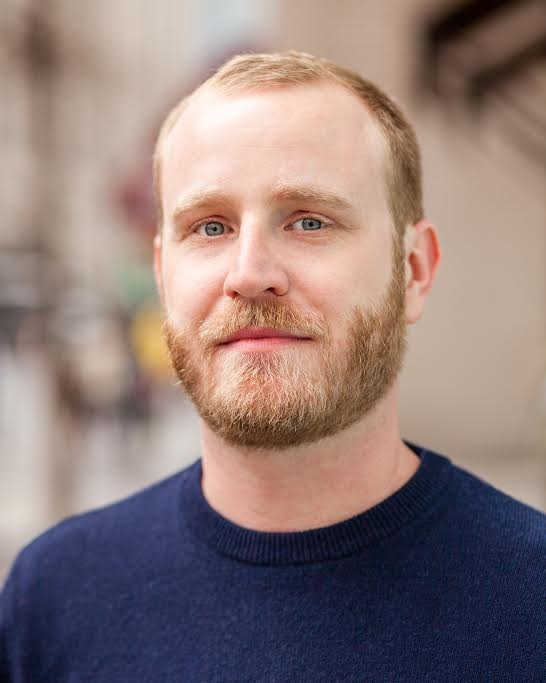Crowdfunding in Theater: Understanding the Why and the How

(© Henry DiRocco) (courtesy of Found)
A year ago, Kristen Bell and Rob Thomas created a record-breaking Kickstarter crowdfunding campaign to raise funds for a Veronica Mars feature film. The project received financial support from more than 88,000 individuals (a new record), garnered huge amounts of media attention, and raised over $5.5 million. Shortly after, Garden State director and current Broadway star Zach Braff launched a successful campaign for his sophomore directing project, Wish I Was Here. Crowdfunding has become such a common form of fundraising for film projects that it's barely surprising to find that there's even a currently running Indiegogo campaign for Sharknado 2. Though those screen-based projects have been well publicized, it is less known that the format is a frequently used and viable funding method within the theater industry as well.

(courtesy of Lawrence Leritz)
Theater producing can be risky — well under half of Broadway's shows turn a profit, for instance — so gathering capital for a new stage production is often difficult. That's why crowdfunding, raising money in relatively small increments from a large pool of backers, is often a good way to go. Particularly in the case of smaller-scale productions, every dollar donated goes toward the nitty-gritty of putting a play or musical onstage. Lawrence Leritz is coproducer of the recently Indiegogo-funded play The Lost Boy, a tale of Peter Pan author J.M. Barrie by late actor Ronald Paolillo. Leritz explained, "[Donations are] going directly to putting up the first production — paying the actors, paying for costumes."
Each theater crowdfunding campaign is as unique as the project it funds. Depending on the needs at hand, donations can be distributed to support a variety of production elements. These could range from enhancing a project already in production by allowing the musicians more paid rehearsal time, the actors a rehearsal space, and adding to technical aspects such as lighting, projections, sets, and costumes. In each case the money will directly benefit a new play or musical in addition to bringing the donator a sense of participation. That's a perk near the heart of Lee Overtree, cowriter of Found, a new musical that follows Found Magazine creator Davy Rothbart through his adventures creating a publication based on discarded notes and letters. "Found is one my favorite projects I've ever worked on because it allows everyone to get involved, and crowdfunding is a natural extension of that." Overtree wrote the musical's book along with [title of show] Tony nominee Hunter Bell. The production is currently raising funds here.

(© James Matthew Daniel)
It's also important to Overtree that donors who go to the trouble of giving can rest assured that the show will be produced. "One of the reasons we went with Indiegogo is it allows us to retain whatever money we raise. Anyone who contributes to the Found campaign can be sure that the show will actually happen," maintained the writer.
Giving individuals the opportunity to be a part of the outcome of a production turns out to be one of the most important reasons that producers turn to crowdfunding. In the case of Allegiance the Musical, a Broadway-bound show about the Japanese-American internment camps of World War II, led by Star Trek's George Takei, creating audience ownership was actually the primary goal. Allegiance opened a page on Indiegogo in early 2012, well before there were any examples of wildly successful crowdfunded entertainment projects. According to book writer and producer Lorenzo Thione, the musical's producers never even considered that their campaign could be used as a means to raise all the necessary capital.
"It just fell into the category of Why not? Why shouldn't we give people a way to support the show? And, if it's successful, reduce our total capital needs, which in turn will make financial sense for the production," Thione remembered. "There really aren't any avenues for people to feel like they're able to support a show, so crowdfunding was emerging as a way of people feeling like they were able to get some kind of participation… And actually it went well beyond our expectations. I think we raised about $160,000 from that."
A sense of ownership plays into the most important facet of an awareness- (and fund-) raising campaign: generating word of mouth. "[We can] rally a grassroots community of people [who] will feel a sense of personal pride when the show opens," Overtree said, adding that he hopes this sense of ownership will prompt contributors to convince the people in their networks to buy tickets and create buzz.

(courtesy of Lorenzo Thione)
These days, creating word-of-mouth popularity mostly means taking to the virtual megaphone of social media and getting your supporters to do the same. But on such an information-saturated and quickly changing platform, projects constantly struggle to avoid being buried in the avalanche of articles and quizzes. One way to stay close to the top of the heap is to get a celebrity to attach him- or herself to a project.
Allegiance the Musical's Thione reflects on the show's forward-thinking symbiotic partnership with George Takei, whose now-prominent online presence had not yet taken off at the time of their campaign. "It gave us the opportunity to have George take a first-player position in that campaign and talk about why the show is important. We sat down with George and said, 'We have an opportunity for you to become a much more visible spokesperson for this project [that] is as important to you as it is to us. We think we can help it really go big.' And it worked out that way."
Thione thinks it should be possible for any project to mimic Allegiance's success — even without Takei — "as long as they start really early to build up that social-media presence and audience," Thione said, adding, "There's a certain amount of work and money that you have to invest in that, and it's part of your development costs."
Found's primary strategy is to reach out to "friends and family, theater lovers, and fans of Found Magazine." "We don't have Zach Braff or Kristen Bell, but we do have Found Magazine," said Overtree of the publication's already-built-in fan base. "[But] our only goal is to keep spreading the word and giving people an opportunity to become involved." Crowdfunding campaigns benefit the industry as a whole because they encourage the growth of the theater community beyond the confines of geography, welcoming fans from all corners of the globe and in every age bracket. This is creating a bond that is essential in an art form built on communal experience.










